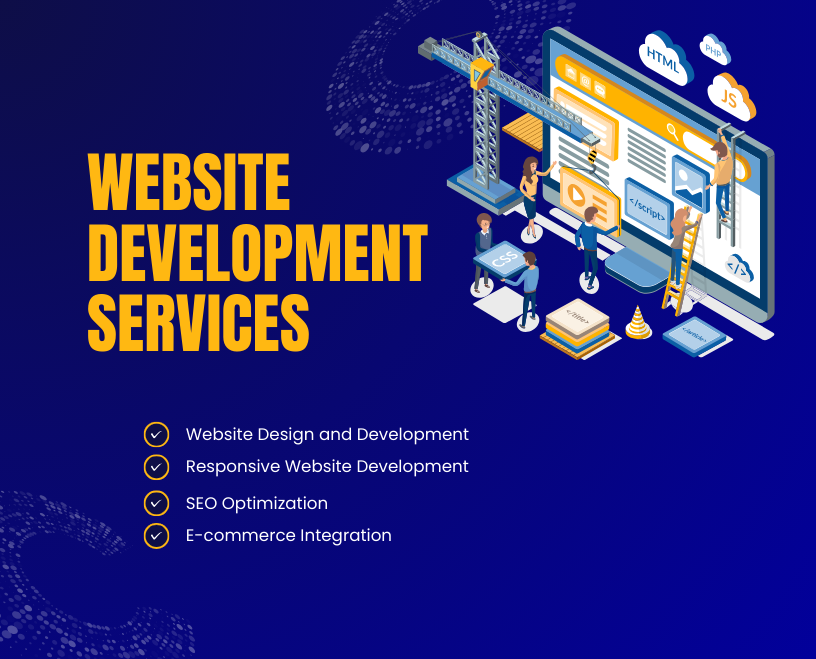In today’s digital age, having a strong online presence is not just an option—it’s a necessity. For real estate companies, a website can serve as a powerful tool to reach potential buyers, build trust, and showcase properties. But why exactly is a website so crucial for your real estate business?
Establish a Strong Online Presence
Why Being Online Matters in Real Estate
The days of solely relying on word-of-mouth referrals or print advertisements are long gone. Today, over 95% of homebuyers start their property search online, according to the National Association of Realtors (NAR). This shift to digital makes having a website critical for any real estate company wanting to remain competitive.
Showcasing Your Brand
Your website serves as your brand’s digital hub. It’s a place where potential clients can learn about your services, team, and properties. Through tailored design and content, you can project your expertise and build trust even before meeting potential clients in person.
Reach More Potential Clients
Wider Audience Access
A website gives your business 24/7 accessibility to potential buyers and sellers, whether they’re local or international. With proper SEO optimization, your site can attract visitors searching for properties in your target areas, expanding your reach far beyond traditional advertising methods.
Mobile Optimization
With more than 58% of real estate searches done on mobile devices, having a mobile-responsive website ensures you cater to modern browsing habits. A mobile-friendly design keeps users engaged and improves your search engine rankings, which translates to more leads.

Generate More Qualified Leads
Capture Information Effortlessly
A real estate website allows you to incorporate lead capture tools such as contact forms, live chat, and call-to-action (CTA) buttons. These tools help you gather important client information, such as email addresses and property preferences, for follow-up communication.
Showcasing Property Listings
Your website can feature dynamic property listings that are easy to browse. Filters for location, price, and features make it simple for users to find what they’re looking for, increasing the likelihood they’ll reach out to your team.
Build Credibility and Trust
Showcase Testimonials and Case Studies
Client success stories and testimonials build confidence among potential buyers and sellers. By featuring these on your website, you demonstrate your track record of success, making your business more appealing to prospects.
Secure and Transparent Transactions
Displaying secure payment options, legal resources, and step-by-step guides to buying or selling properties instills confidence in your audience. This transparency helps establish you as a trustworthy real estate expert.
Optimize Marketing Costs
Cost-Effective Advertising
A well-designed website allows you to invest in cost-efficient marketing strategies like search engine optimization (SEO), pay-per-click (PPC) campaigns, and social media integrations. These strategies often cost less than traditional advertising while delivering higher returns.
Email Marketing Integration
Your website can serve as a launchpad for email marketing campaigns. By collecting visitor emails through newsletter subscriptions or inquiries, you can send targeted updates about new listings or market insights, keeping your audience engaged.

Stand Out in a Competitive Market
Customized User Experience
A website allows you to tailor the user experience to your audience. For example, adding virtual tours, high-resolution property images, and video walkthroughs can help you stand out and provide an edge over competitors.
Differentiate Your Services
Highlighting unique services like property valuation tools, real-time market analytics, or neighborhood guides can set you apart from other agencies in your area.
Leverage Data to Drive Decisions
Analytics for Business Growth
Your website gives you access to valuable data about visitor behavior, such as which pages they visit most or how long they stay. This insight allows you to refine your strategies and focus on what’s working.
Track Campaign Performance
If you’re running digital marketing campaigns, your website is the perfect place to measure success. Use tools like Google Analytics to track traffic, conversions, and ROI, ensuring you make data-driven decisions.
Adapt to Evolving Consumer Expectations
Tech-Savvy Buyers and Sellers
Today’s consumers expect digital tools like interactive maps, instant messaging, and real-time updates on properties. A modern website equipped with these features not only meets but exceeds their expectations.
Integrating Social Proof
By connecting your website to social media platforms and showcasing client interactions, you build a well-rounded online presence that resonates with today’s tech-savvy audience.
Enhance Your SEO Strategy
Dominate Local Search Results
Local SEO optimization helps your website rank higher for search queries like “real estate agents near me” or “homes for sale in [city].” This ensures you’re visible when prospects are actively searching for services you offer.
Content Marketing Boost
A blog on your website allows you to share valuable insights, such as market trends, home-buying tips, and neighborhood reviews. Not only does this improve SEO, but it also positions you as an industry authority.
Adapt to the Future of Real Estate
Staying Ahead of Trends
The real estate industry is evolving, with innovations like AI-powered property searches, blockchain for secure transactions, and virtual reality tours. Your website is the foundation for adopting and showcasing these future-ready technologies.
Creating Long-Term Value
A website isn’t just a one-time investment; it’s a long-term asset that grows in value as your business expands. Regular updates, SEO enhancements, and engaging content ensure your site remains relevant and effective.
Where can you create a Real Estate Website?
1. Website Builders (No Coding Required)
- Wix: Offers customizable real estate templates, easy drag-and-drop functionality, and SEO tools.
- Squarespace: Great for elegant designs and showcasing property listings visually.
- Weebly: Easy to use, with integrated tools for marketing and lead generation.
2. Content Management Systems (CMS)
- WordPress: One of the most popular platforms for building real estate websites. It has plugins like Estatik and Real Homes for property listings, maps, and advanced search.
- Joomla: Offers extensions like OS Property and Real Estate Manager for creating feature-rich real estate websites.
- Drupal: Suitable for more complex projects, offering high flexibility and scalability.
3. Real Estate-Specific Platforms
- Placester: Designed specifically for real estate professionals. It offers IDX/MLS integration, lead capture tools, and mobile-friendly designs.
- Real Geeks: Focused on generating leads with features like CRM integration and IDX listings.
- Zillow Builder: Helps agents and brokers create branded websites connected to the Zillow database.

4. Custom Development
If you have specific needs or want a unique design:
- Hire a Development Company: Companies like Fara IT Limited (if relevant to you) or other web development agencies can create a custom solution tailored to your needs.
- Freelancers: Platforms like Upwork or Fiverr allow you to hire individual developers.
- Build It Yourself: Use programming languages like HTML, CSS, JavaScript, and backend tools like PHP, Python, or Node.js, along with frameworks like React or Laravel.
5. E-Commerce Platforms (If Selling Properties Online)
- Shopify: Good for selling real estate or rentals online, with plugins for real estate listings.
- BigCommerce: Offers features for online sales with marketing tools.
Key Features to Include in a Real Estate Website
- Property Listings: Include high-quality images, detailed descriptions, and price details.
- Advanced Search: Filters for location, price, type, and features.
- Map Integration: Display properties on a map with Google Maps or other mapping services.
- Contact Forms and CRM: For lead generation and client management.
- Mobile Responsiveness: Ensure your site works well on all devices.
- Blog Section: Share real estate tips and news to attract more visitors







